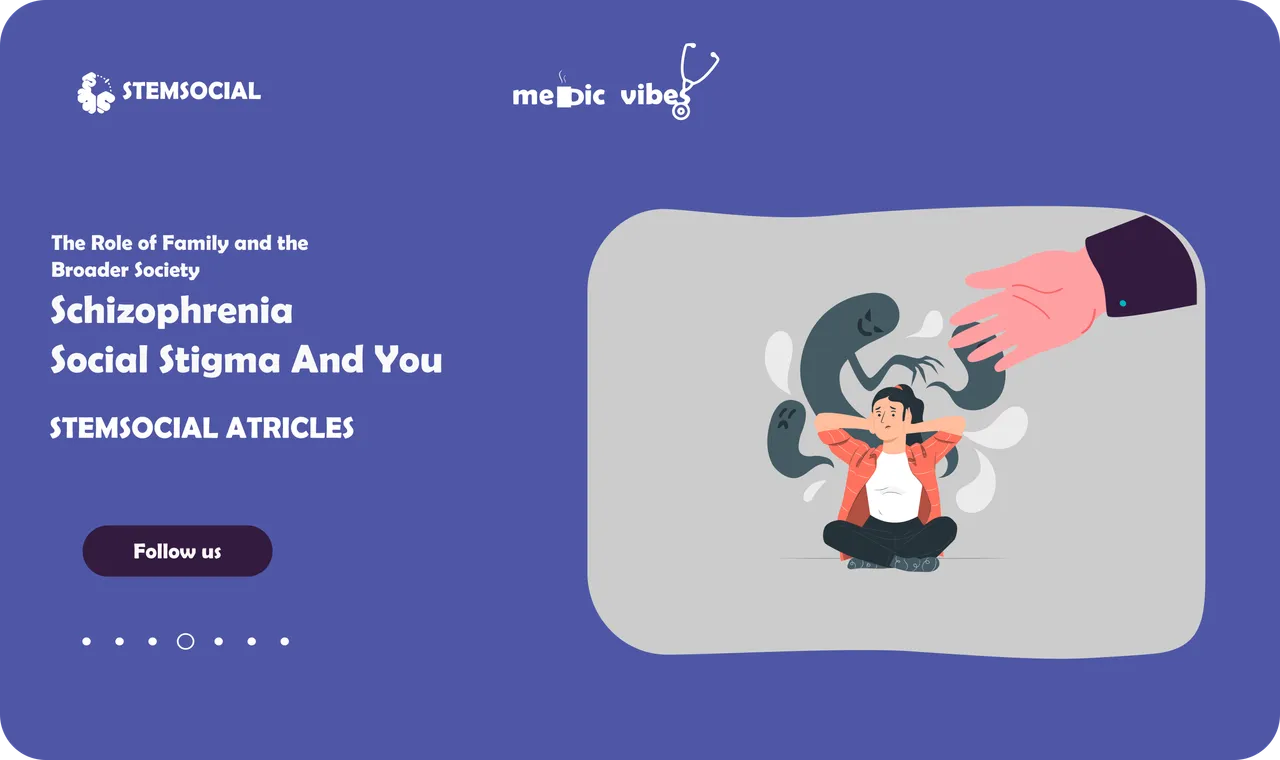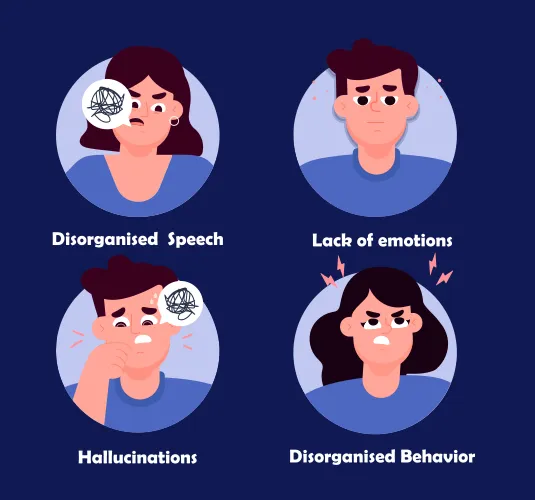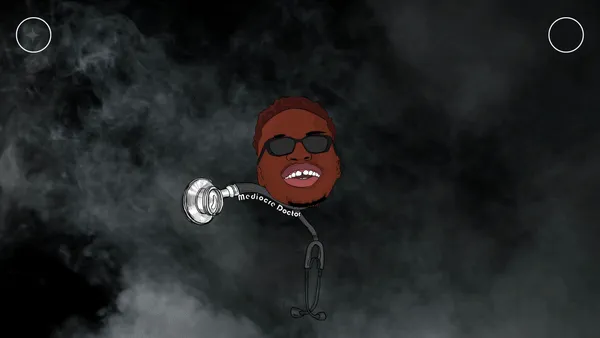 Sources
Sources
Freepik and Inkscape.org
A person with schizophrenia has distorted perceptions of the world around them. Schizophrenia is a serious mental illness and can be the cause of a variety of symptoms, including delusions, hallucinations, and profoundly disorganized thought and behaviour, all of which interfere with daily functioning and have the potential to be devastating.
An article on the Economic Cost of Schizophrenia in a Nigerian Teaching Hospital published in 2017 wrote that
Schizophrenia is a costly disease in Nigeria just as in developed countries. The mean total, direct, and indirect costs per patient were $818.48, $349.59 (42.7%), and $468.89 (57.3%). Nigeria is Africa's most populous country with an estimated population of 186 million people. Given the prevalence rate of 0.4%.
This shows the borden of the condition excluding the mental health implications on those affected by the condition and the relatives of the individual.

Source: Assortment vector created by freepik - www.freepik.com
Feature Schizophrenia
Usually afflicted are men in their late teens or early 20s. while it affects predominantly women in their late 20s and early 30s. The prodromal phase is when symptoms begin before psychosis. Days, weeks, or years pass. There's frequently no obvious trigger.
Negative symptoms include a lack of emotion or a limited range of emotions, there is also a lack of appropriate reaction to the environment. These are positive symptoms that show that the person can't think clearly or respond as expected and includes symptomsbehavioursdelusion, hallucinations and disorganized behaviors. Symptoms of Schizophrenia affect people all over the world, of all races and cultures.
Schizophrenia can occur in children above the age of 5, although it's uncommon before puberty.
How Is Schizophrenia Diagnosed?
A person is diagnosed with schizophrenia if they have at least two positive symptoms (with at least 1 positive symptom being hallucination, delusion or disorganised speech) and 1 negative symptom for at least 6 months: Symptoms should negatively affect them socially or at work, and can't be caused by any other condition.
Treatment
The purpose of schizophrenia treatment is to reduce the likelihood of relapse and to lessen the severity of the symptoms. Primary medications used to treat schizophrenia are called antipsychotic medications. The only FDA-approved drug for the treatment of schizophrenia that is unresponsive to other medications is clozapine. Psychotherapy can help people with schizophrenia learn coping and problem-solving skills. Electroconvulsive therapy (ECT) is less well-proven to help with schizophrenia than depression or bipolar disorder. Deep brain stimulation (DBS), is being studied by researchers to treat schizophrenia and its gathering a lot of attention.
Violence and Schizophrenia
People who suffer from schizophrenia and other mental diseases are portrayed as dangerous and violent in a number of popular literature and films. In most cases, this is not the case. The vast majority of individuals who suffer from schizophrenia are not violent. The majority of the time, they choose to isolate themselves and be left alone. When people who suffer from mental illness engage in risky or aggressive activities, it is almost always the outcome of their psychosis as well as the fear that they are in some way being endangered by the environment in which they are located. Using drugs or drinking alcohol can make it much more severe.
On the other side, those who suffer from schizophrenia are at risk of harming themselves. People who have schizophrenia have a significantly increased risk of dying from suicide compared to the general population.
As a person who was physically assaulted by a schizophrenic once, I really am sceptical about walking close to schizophrenics especially if I don't know them. Schizophrenia is managed by the community, especially in Nigeria where schizophrenics are let to roam everywhere unmanaged.
When I moved to Anambra, I had to ask about all the mentally ill people on the roadside before I could walk around them.
"Have they been violent before?"
This is a very important question to ask people who stay or work around the person. They usually have answers and will give them.
Once a food vendor told me that one who was living on the roadside got into a fight with a customer.
I enquired further about the reason why this had happened. She said it was because the customer had tried to stop her from giving him free food.
Another factor is the area they stay in.
If they are in a lonely freeway they really want to be away from people and you should respect that. Don't walk into their "house" and feel you'll go unchallenged.
Their behaviour toward other people is also important. If they are making threats at people at random then you need to give them some space.
This is all my personal opinion and is not based on any research. so take this with a grain of salt.
I'd like to know what you do to avoid violent encounters with them.
How to help as a family member
Family therapies for schizophrenia are effective. We want the patient's family and treatment team to collaborate. The shutting of institutions, the rise of cities, and the creation of new evidence-based treatments affect family interventions. In Nigeria, a family's financial load affects patient'sients quality of life.
Family is a patient's main source of support after an inpatient stay or first contact with mental health services, even more than the medical personnel. When family members have mental health issues, experts recommend psychoeducation and family counsellinge. Schizophrenia impacts many aspects of a person's life and requires extensive treatment. Psychoeducational approaches should be encouraged by mental health services. Intercultural methods can change clinic family interventions.
According to a study done in Ibadan, studying those who were homelsss 60% had been on the streets for 5-10 years and 84.3% had never had contact with any formal mental care facility. The most prevalent DSM IV diagnosis was schizophrenia, followed by substance use disorder and co-morbid substance use plus psychosis.
Mental illness and homelessness are linked to substance abuse, chronic diseases, poor health, and service barriers.
How you can help
Well, I'm doing my part by sharing this post and trying to destigmatize the mental condition. You can help me by sharing this so fewer people are influenced by wrong information.
If you enjoyed this post don't forget to share it...The more you share it the more google feels a lot is going on on the page and who knows you might help Medic Vibes get to a really good place.

